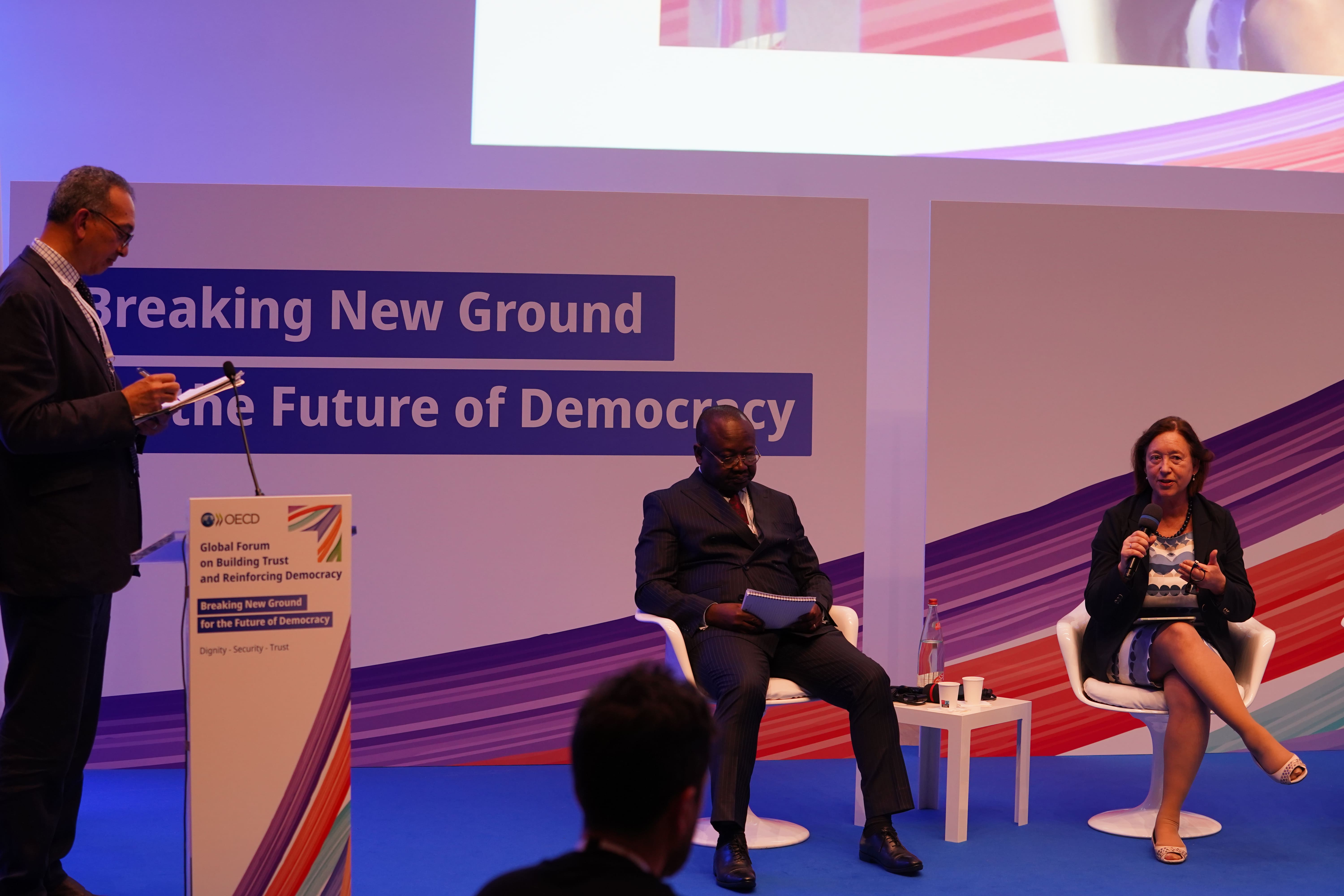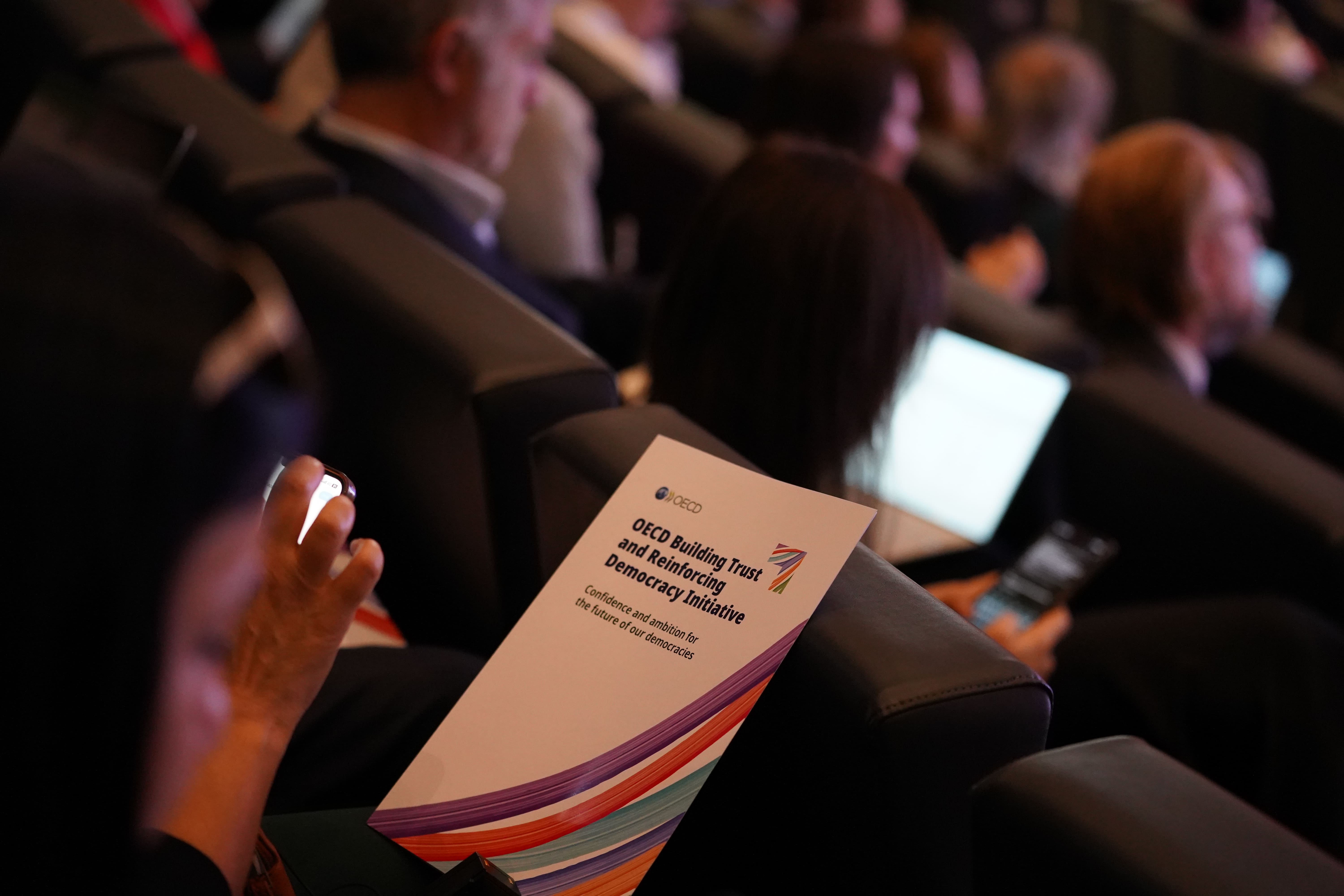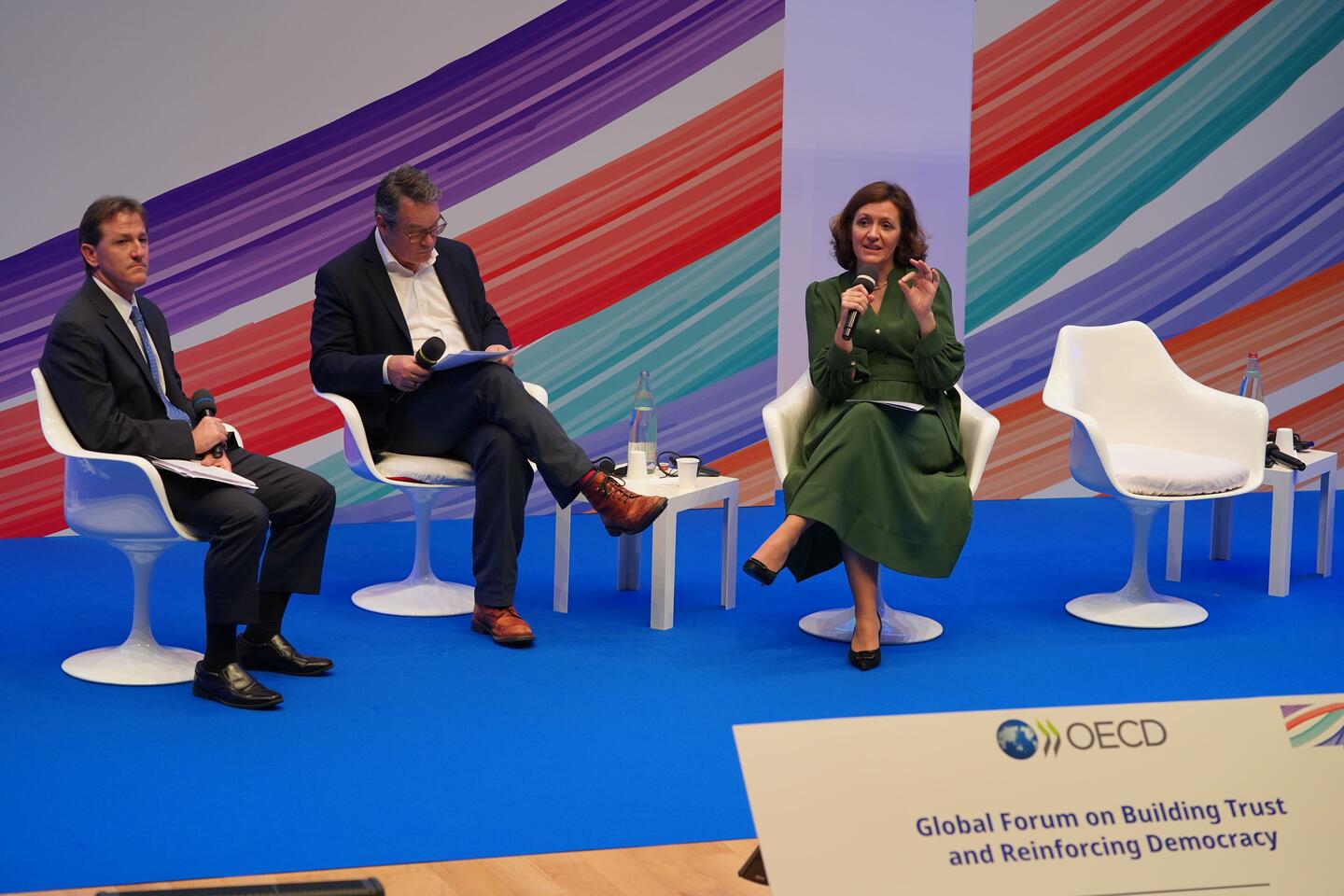Reinforcing democracy in Europe
The OECD Global Forum served as a platform to address declining trust in public institutions, the rise of polarisation, and the challenges posed by emerging technologies like artificial intelligence. "This year's Global Forum on Democracy and Trust is so important because at this point in time, at this point in history, our democracies, all of them around the world, are facing a number of key challenges., added Gillian Dorner, Deputy Director at the OECD Directorate for Public Governance. "This includes, for example, mis- and disinformation, lower trust in public institutions, disengagement of many parts of our society with democracy.", she added.
The EEA and Norway Grants, funded by Iceland, Liechtenstein, and Norway, highlighted their unwavering commitment to empowering local communities and strengthening grassroots organisations across Europe.
In connection with the new programming period for the EEA and Norway Grants, we will launch our biggest fund for civil society ever. More than €320 million will be made available for civil society in the next years. Ingrid Schulerud, Norwegian Ministry of Foreign Affairs
 Ingrid Schulerud, Special Representative on Democracy and Rule of Law (Norwegian Ministry of Foreign Affairs) speaking at the closing panel at the OECD Global Forum in Milan, 2024.
Ingrid Schulerud, Special Representative on Democracy and Rule of Law (Norwegian Ministry of Foreign Affairs) speaking at the closing panel at the OECD Global Forum in Milan, 2024.
One of the highlights of the OECD Global Forum was the panel organised by the EEA and Norway Grants titled "The role of civil society in Central and Eastern Europe (CEE) in promoting information integrity to safeguard liberal democracy and regain public trust.” The CEE region is particularly susceptible to disinformation, exacerbated by geopolitical tensions such as Russia's war against Ukraine, and national governments often lack the preparedness to address these challenges effectively.
The EEA and Norway Grants were crucial for Poland because we had, again, a very complex political situation, and there was no access to the public funding, which was, again, crucial for NGOs and informal movements. Krzysztof Izdebski, Stefan Batory Foundation.
Panel organised by the EEA and Norway Grants at the OECD Global Forum in Milan, 2024.
The panellists also shared successful civil society initiatives supported by the Civil Society Fund and proposed models for effective cooperation with governments in the future. The project Demact - Learning Democracy in School is one of the successful initiatives funded by the EEA and Norway Grants in Romania. The NGO Apulum Foundation, in cooperation with Arkivet, the Norwegian Peace and Human Rights Centre, developed a journalistic project that is now reaching more than 3 million young people every month on their Instagram channels. "Through the support from the EEA and Norway Grants, we had the opportunity to grow as an organisation and do a media project that is now the main source of information for young people in Romania", said Diana Filimon, one of the panelists of the session and President of the NGO Forum Apulum.
The OECD Global Forum offered discussions on key governance challenges that democracies face, and delved into the role public institutions have in rebuilding trust and developing actionable strategies. "Now it is the time for leaders, civil society, and all democratic actors to collaborate and work with renewed urgency. The challenges ahead require anticipation, innovation, and unwavering commitment.", added Ingrid Schulerud. The EEA and Norway Grants exemplify this balanced approach by fostering partnerships with civil society, local governments, and independent institutions, even in challenging political environments.
Addressing European challenges through collaboration
One of the main conclusions from this year's OECD Global Forum was that European challenges can only be addressed by working together. "This Forum is an example of global actors coming together to discuss what truly matters, and I hope that many such initiatives will follow in the future.", added Judit Rózsa, acting Director General in the Directorate-General for Structural Reform Support of the European Commission.
For the European Commission, working across international organisations such as the OECD, the Council of Europe, the EEA and Norway Grants is a crucial way to reinforce democracy, to engage with civil society, and increase trust towards the public administration.et. Judit Rózsa, acting Director General, European Commission.

The OECD and the EEA and Norway Grants’ international cooperation in the sphere of building trust and reinforcing democracy is vital. Partnerships are essential to ensure that the actions taken by key actors in improving democracy and build trust is implemented on the ground.
The EEA and Norway Grants is what allows the OECD to achieve that by working together to ensure that the necessary policies, capacity building, and action plans are put in place to deliver progress. Gillian Dorner, Deputy Director, OECD.
The Council of Europe cooperation with the EEA and Norway Grants is also an important instrument to tackle common challenges. "The Council of Europe and the EEA and Norway Grants have been working together for quite a long time in supporting the standards in aligning legislation and meeting challenges.", added Simona Granata-Menghini, Director/Secretary of the Venice Commission of the Council of Europe.

"These days, we assist to what we call the democratic backsliding of democracy and the rule of law, and working on the standards, making them more pertinent, more appropriate, more known, better accepted, better understood by the people and by the authorities can only be beneficial,", she emphasised.
The Council of Europe and the OECD share the same values, which are democracy, respect for human rights, and respect for the rule of law. We work towards achieving these values, which is the same objective of the EEA and Norway Grants. Simona Granata-Menghini, Director/Secretary, Venice Commission, Council of Europe.
A partnership for change moving forward
Throughout the Forum, the EEA and Norway Grants engaged in meaningful dialogues with regional authorities, civil society organisations, and international partners. The Forum reafirmed the importance of working together to tackle some of the most pressing challenges facing democracies today and concluded that empowering civil society is key to reinforcing democracy and building trust in public institutions.
If you missed the event, the work continues. Stay informed about upcoming initiatives and ways to get involved in supporting local communities across Europe. Together, we can make sure that civil society remains a driving force for positive change.
